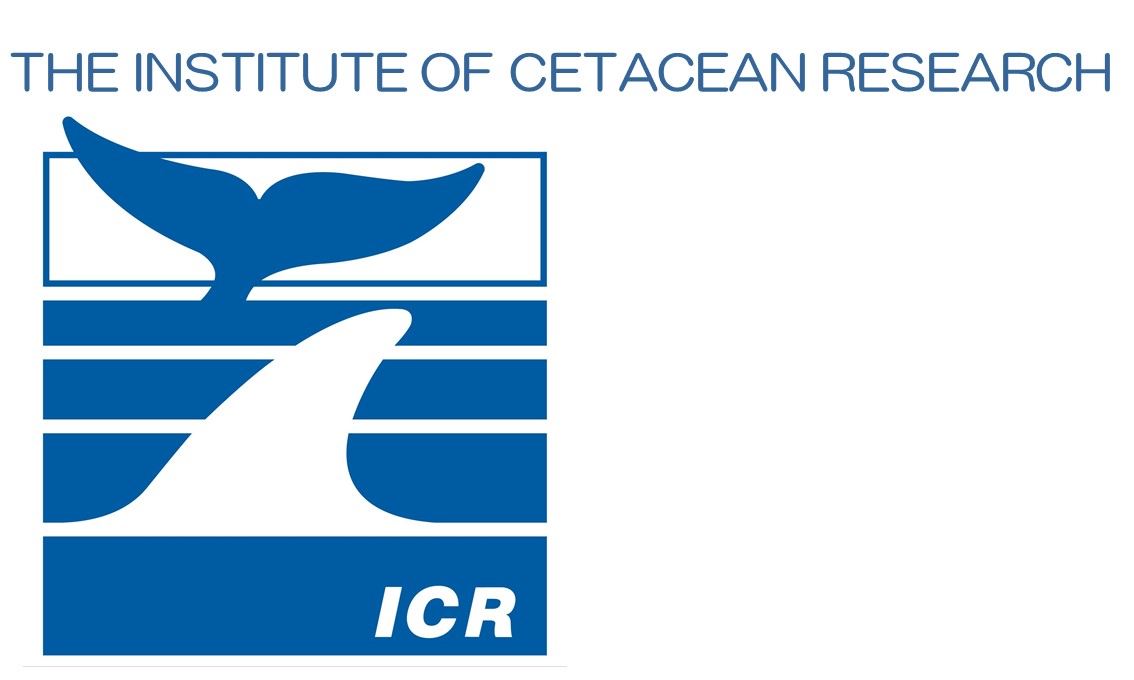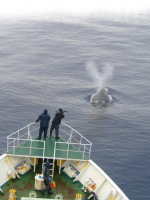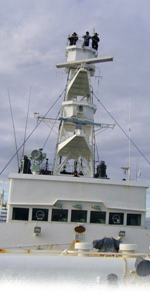JAPAN PURSUING ORIGINAL RESEARCH PLAN IN SOUTHERN OCEAN
2008/01/31
The Japanese scientific whaling program in the Southern Ocean will pursue its original research plan after the departure of both Greenpeace and Sea Shepherd back to Australia following weeks of dangerous and illegal harassment.
The Director-General of the Institute of Cetacean Research in Tokyo, Mr Minoru Morimoto, said today that the research vessels would continue to undertake their program as outlined to the Scientific Committee of the International Whaling Commission.
The research includes non-lethal sighting surveys and biopsy samplings from live whales as well as a lethal research take of 850 minke whales and 50 fin whales.
"The ICR temporarily suspended the research while Greenpeace and Sea Shepherd were harassing our vessels," Mr Morimoto said. "We suspended the research to ensure the safety of our crew and scientists as well as those of the activists dangerously attempting to interrupt our program."
"We are confident of achieving the program's stated objectives for this season," he added. "Japan's research is of vital importance for the management of whales because any regulations adopted by the IWC must - in line with the Whaling Convention ? be based on scientific findings."
Mr Morimoto said that commonsense needed to be brought into the discussions over commercial whaling. "Many whale stocks in the world today are abundant and commercial whaling can be managed on a sustainable basis, while conserving real threatened species (such as the blue whale) based on evidence derived from scientific research."
"Greenpeace and Sea Shepherd want you to think that whales are endangered, but nothing could be further from the truth. A commercial whaling regime could be undertaken tomorrow in a manner that would ensure whale populations continue to grow and allow current and future generations of the world to enjoy the grace of the ocean forever."
Mr Morimoto singled out some media organizations for criticism in their recent coverage of the activities of Greenpeace and Sea Shepherd.
"There are few journalists in Australia and New Zealand who are prepared to question Greenpeace and Sea Shepherd when they assert that our research is 'illegal' or 'commercial' or make any number of false accusations. Unfortunately, too many journalists have thrown aside their responsibilities for factual reportage and instead get away with writing false assertions by these groups as if they were fact," he said.
ENDS




